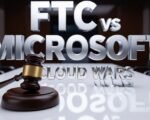Singapore is grappling with a significant cyberattack as Chinese state-sponsored hackers breach Singtel, the nation’s largest mobile carrier, marking a troubling escalation in global cyber threats.
This summer, Singtel fell victim to a sophisticated cyberattack orchestrated by the notorious Volt Typhoon group. Discovered in June, the breach remained under wraps until recent reports shed light on the incident. Two sources close to the matter, who preferred to remain anonymous due to the ongoing investigation, confirmed the involvement of Volt Typhoon—a group linked to Chinese state interests.
The breach wasn’t an isolated incident. It was part of a broader campaign targeting telecommunications companies and critical infrastructure operators worldwide. This pattern suggests a calculated effort by Chinese hackers to undermine global telecom networks, potentially paving the way for more disruptive cyberattacks.

The Five Eyes Alliance Raises the Alarm
Earlier this year, the Five Eyes intelligence-sharing alliance—which includes the US, Australia, Canada, the UK, and New Zealand—issued warnings about Volt Typhoon’s activities. The group has been embedding itself within compromised IT networks, giving China the capability to launch significant cyberattacks should military conflicts with the West escalate.
Experts believe that the Singtel breach serves as a testing ground for these hackers, refining their methods and expanding their reach. “This is more than just a breach; it’s a rehearsal for potential large-scale cyber warfare,” said Dr. Linda Cheng, a cybersecurity analyst based in Singapore. “The implications are vast, affecting not just telecoms but the very fabric of our digital infrastructure.”
Singtel’s Response: A Shield of Denial and Defense
When approached by Bloomberg News, Singtel maintained a cautious stance, neither confirming nor denying the breach outright. “We understand the importance of network resilience, especially because we are a key infrastructure service provider,” a company spokesperson stated. “That’s why we adopt industry best practices and work with industry-leading security partners to continuously monitor and promptly address the threats that we face on a daily basis.”
This statement, while reassuring, leaves much to be desired in terms of transparency. Stakeholders and customers are left wondering about the extent of the breach and the specific measures Singtel is taking to mitigate future threats.
The Chinese Embassy’s Silence and Deflection
In a surprising move, the Chinese Embassy in Washington responded to inquiries with a blanket denial of involvement. Liu Pengyu, a spokesperson, stated, “China firmly opposes and combats cyberattacks and cybertheft.” However, this declaration rings hollow in the face of mounting evidence pointing towards Chinese state-sponsored activities.
Is this the classic deflection tactic, or is there more to the story? Cybersecurity experts remain skeptical, emphasizing the need for more concrete evidence before drawing definitive conclusions.
The Ripple Effect: Global Implications of the Breach
The Singtel breach isn’t just a local issue; it has far-reaching implications for global cybersecurity. As Singtel operates extensively across Southeast Asia and Australia, the vulnerability exposed by this attack could potentially affect millions of users and businesses relying on its services.
Moreover, the breach provides valuable insights into the expanding scope of Chinese cyberattacks. Information gathered from this incident is likely fueling further attacks on critical infrastructure in the US and other nations, exacerbating tensions in international relations.
Real-World Consequences: Lives and Data at Stake
Behind the statistics and technical jargon lie real lives affected by these cyberattacks. Personal data, financial information, and sensitive communications are all at risk, potentially leading to identity theft, financial loss, and privacy invasions for millions of individuals.
Moreover, the disruption of telecom services can have cascading effects on emergency services, business operations, and national security. Imagine a scenario where emergency communication systems are compromised— the stakes couldn’t be higher.
Expert Opinions: Navigating the Cybersecurity Minefield
Cybersecurity experts are sounding the alarm, urging both governments and private sectors to bolster their defenses. “The Singtel breach is a wake-up call,” said Dr. Michael Tan, a cybersecurity strategist. “We need to rethink our approach to cybersecurity, investing more in proactive measures rather than reactive solutions.”
He advocates for a multi-layered security strategy, incorporating advanced threat detection, regular security audits, and robust incident response plans. “It’s not a matter of if another breach will occur, but when. We must be prepared.”
Strengthening Defenses: What’s Next for Singtel and Beyond
In the aftermath of the breach, Singtel is likely to ramp up its cybersecurity measures. This includes enhancing encryption protocols, increasing staff training on cyber threats, and collaborating more closely with international cybersecurity organizations.
For other telecom companies, the Singtel incident serves as a stark reminder of their vulnerability. Proactive measures, such as regular security assessments and adopting cutting-edge security technologies, are now more critical than ever.
The Broader Battle: Cyber Warfare in the Modern Age
The Singtel breach is a microcosm of the larger battle being waged in the digital realm. Nations are increasingly viewing cyber capabilities as extensions of their military power, leading to an arms race in cyber warfare. This new frontier of conflict raises profound questions about sovereignty, ethics, and the rules of engagement in cyberspace.
As technology continues to evolve, so too do the tactics of cyber adversaries. The international community must come together to establish norms and agreements that can mitigate the risks of cyber warfare, ensuring that these digital battles do not escalate into real-world conflicts.
Public Awareness: The Frontline of Cyber Defense
While governments and corporations work to shore up defenses, public awareness remains a crucial element in the fight against cyber threats. Individuals must stay informed about best practices for cybersecurity, such as using strong passwords, enabling two-factor authentication, and being cautious of phishing attempts.
Educational campaigns and public-private partnerships can play a significant role in enhancing the collective resilience against cyberattacks. “Cybersecurity is everyone’s responsibility,” emphasized Dr. Linda Cheng. “Empowering the public with knowledge is one of the most effective defenses we have.”
Looking Ahead: The Future of Cybersecurity in Telecommunications
The Singtel breach underscores the evolving nature of cybersecurity threats in the telecommunications sector. As technology becomes more integrated into every aspect of our lives, the importance of securing these networks cannot be overstated.
Future strategies will likely focus on artificial intelligence and machine learning to predict and counteract cyber threats in real-time. Additionally, international cooperation and information sharing will be paramount in staying ahead of cyber adversaries.
As Singapore and the world grapple with these challenges, the lessons learned from the Singtel breach will be invaluable in shaping the future of cybersecurity, ensuring that our digital infrastructure remains secure and resilient against the ever-present threat of cyberattacks.








